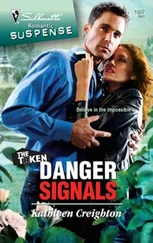‘He’s hell set on damaging his one true brother in the selfish interests of fraternity,’ was Fidia’s practised opinion.
At Aymer’s instigation, three factory hands had formed a Works Committee and should be (Fidia again) ‘sacked before they do some harm’. Matthias wished his brother were elsewhere, so that the sackings could take place without commotion. As in everything, his wishes would come true.
It was the plight of kelpers such as Rosie and Miggy Bowe in their rough cottages at Dry Manston that would provide Matthias with some respite from his brother’s quarrelsome philanthropy, and bring Aymer on the journey west. For forty years Hector Smith & Sons had bought supplies of soda ash for soapmaking from the kelpers on the coast beyond Wherrytown. Walter Howells and Walter Howells’s father before him had been Smith agents there, purchasing the kelp ash from the Dry Manston families and arranging wagons to deliver it to the manufactory, five days’ journey overland to the east. Now thanks to Nicolas Leblanc, a French surgeon with a taste for chemistry, a simple process was established to extract sodium carbonate from common salt. It was pure; it was cheap; and when the railway was complete it could be delivered within a day. ‘What is the point,’ Matthias asked Aymer, ‘in using Mr Howells when we have Leblanc?’
‘The point,’ said Aymer, ‘is our Duty. The Smiths and Howells have been partners since we were young. Our fortunes have been interlocked. And Mr Howells has contracts — moral ones at least, if not legally established — with families who rely on stooping in the sea for kelp for their small incomes.’
‘Well, let them give their backs a rest and let them dry their feet. We have no further need of kelp. I cannot argue further.’
‘I will not let this rest.’
‘Aymer. The choice is mine, not yours. You well know the stipulations in Father’s will. Besides, my letter to Mr Howells is already written and ready for dispatch. I will not go back on my word.’
‘You cannot break their trust by letter! What friends are we to hide behind the mail?’
‘You would prefer, perhaps, to write a sonnet?’
‘I would prefer that you and Mr Howells would sit down face to face …’
‘You want me then to take an empty wagon back to Wherrytown to tell a man whose face we do not know that we desire to purchase better, cheaper soda somewhere else? The man will take me for a fool, as, Aymer, I take you.’
‘What of your duty, then? What of your conscience?’
‘And what of yours?’
‘My conscience remains clean.’
‘Then you can take the wagon west. Why don’t you? Or take the coastal boat, for all I care. Our father might have left the running of this works to me, but I do not think he stipulated how Duty and Conscience should be divided.’
‘Well, then, if it cannot be you it must be me. I will travel to see Mr Howells with this bad news.’
‘Then do so, sir. And do as little mischief as you can.’ And may you break a leg en route.
Now Aymer was ensnared. He had no appetite for such a long and testing journey. He wasn’t suited to the countryside. He’d never travelled far from home. But once arrangements had been made for his departure for Wherrytown he found himself aroused and impatient. Perhaps when he was away from the city and in a place where surely he might count on some respect, he could find for himself what more than Justice and Reform he had desired for all his adult life, a loving country wife.
So Aymer Smith had taken the Ha’porth of Tar on the journey west in a fearful and a hopeful mood. He was surprised how travel unleashed him, how he could talk to sailors on the boat with a freedom absent from his home and city life. He was encountering, also, that other liberation which is the gift of travel and unfamiliar places. He — the virgin and the masturbator — was poised, engorged and shallow-breathed with expectations and desires. So now, in Wherrytown, his tears short-lived, his letters written, he left his cold room at the inn ostensibly in search of George, but mostly to sniff round like a dog, to poke his nose in rooms, to seek a friendly face, to find the margins of his new emancipation. He went up two flights of steps to reach the ground-floor parlour. George was sitting with a pipe.
‘Is there a boy to take these letters for me?’ Aymer asked.
‘There’s only me.’ George took the letters. ‘What a place! No boys, no boots, no chambermaids! No tips!’ he said, and walked out of the parlour without leave.
Aymer stood with his back to the grate which Mrs Yapp had cleaned and prepared, and waited for the lighting of the woods. He hadn’t been waiting more than thirty seconds when a young couple entered from the lane, a thin-haired man with spectacles and a woman without a bonnet but kept warm by a tiered shoulder-cape which fastened at her chin. She would have been a fool to wear a bonnet. Her hair was held in one loose tress by black ribbons. It was so sandy in colour and so buoyant that Aymer could not prevent himself from staring.
‘We were hoping for a bit of fire,’ the young man said, rubbing his hands at the empty grate.
‘Indeed, we all were hoping for some fire, but, it seems, our hosts do not subscribe to wasting warmth on guests,’ said Aymer, blushing. He held his hand out for the man to shake. ‘Aymer Smith. I’m rooming here. On business.’
He put his hand in Aymer’s. ‘And so are we, except it’s not on business that we’re here. We’re taking passage on a boat to Canada. If it ever comes! It was due two days ago, but there’s no sign of it. My wife and I have been walking on the quay and there are no sails on the sea except for fishermen.’
‘Then you are emigrants?’
‘We are. God Save Us. I’m Robert Norris. And this is Mrs Norris and has been for a fortnight now. Katie is her name.’
Aymer put his hand out once again and Katie put her hand in his. It was cold and smooth and dry, as flimsy and as modest as her hair was grand. ‘I’m happy to meet you, sir.’
‘A pity that our acquaintance will be so short.’
‘Well, not so short,’ said Robert Norris. ‘I must suppose that we are trapped here for a few days now. I can’t be sure if that is happy news or not.’
‘Don’t be so doubting, Robert.’ His wife was the teasing not the bashful sort. ‘They’ll not want dismals like yourself in Canada.’
‘It’s not the colonies that bother me, but what we might endure on the passage there. I’ve not the constitution for the sea.’
‘And nor have I,’ said Aymer. ‘But I have taken passage here by sea and I have ridden out the worst of storms.’ He remembered now the bruising to his shoulder which, truth be told, had stopped hurting the moment Katie had come in. ‘I tumbled from my berth and took a blow. But here you see me, well set up and only disembarked today. The observations to be made are these: on ship a passenger should have no fear of nausea if he stays off the deck and is not tempted by the portholes. Stay in your quarters. Let the wooden walls be the furthest horizons you allow. Let the deck above you be the sky. Take all your orientations from the space allotted you, and as the ship tips and rolls so you do too. Your body and your eye are in concord. But think to walk on deck to witness what a storm can do first-hand, and you will feel your body bucking like the ship. Your eye will sway between the still horizon or the stiller stars and battle with the masts and rigging of the boat so that your every step is like that of a drunken man. And thus seasickness will set in.’ A pleasing and a helpful lecture, Aymer thought.
‘It seems a pity to go so far and see so little,’ commented Katie.
‘The sickness is the price you pay for seeing,’ said Aymer. ‘I think there might be some general truth in that philosophy. To learn is to suffer. To suffer is to learn.’ He chuckled at his observation. And Robert and Katie Norris beamed at him with such indulgence and such attention that he felt glad to be in Wherrytown. Normally he didn’t welcome scrutiny. Not that he was the kind of man to command the stares of strangers. He liked to think of himself as a plain man, plainly spoken. He didn’t care for adjectives, or anything that was too ornamented. He liked the force of facts and objects, and he endeavoured to make his conversation instructional. ‘Still, such observations will not warm you from your walk,’ he concluded. ‘Our landlady is not at hand, it seems.’ He stepped across to the parlour sideboard, lifted the inn handbell and shook it. ‘That should bring our Mrs Yapp running.’
Читать дальше












